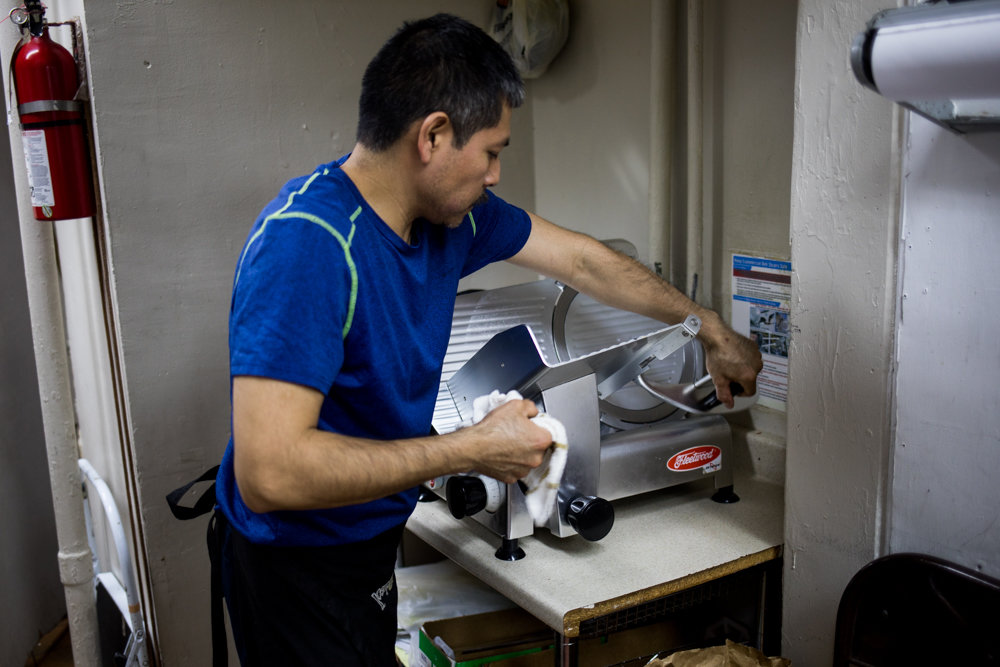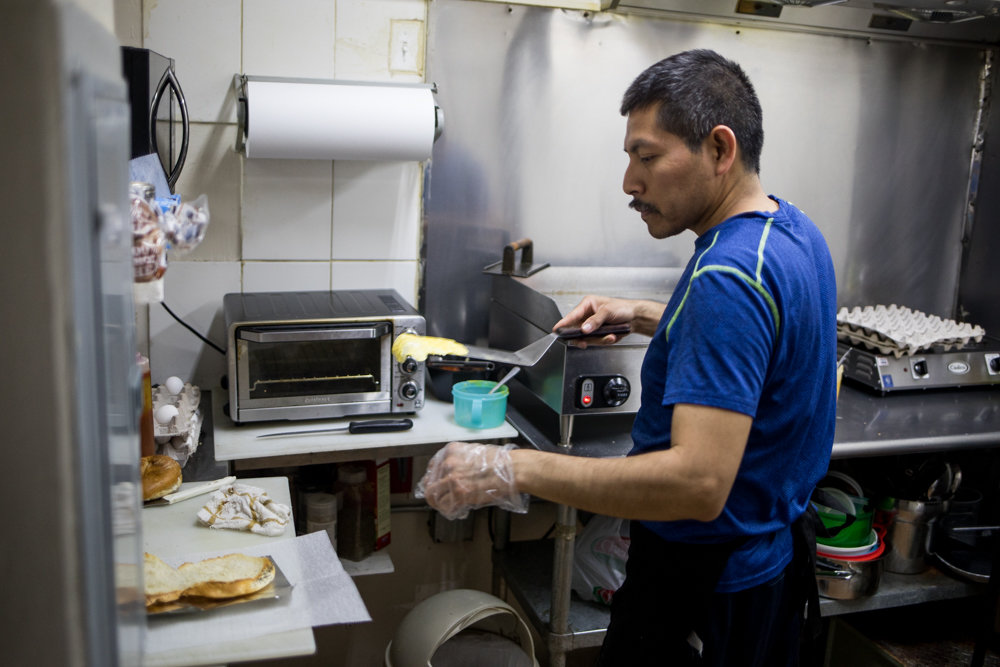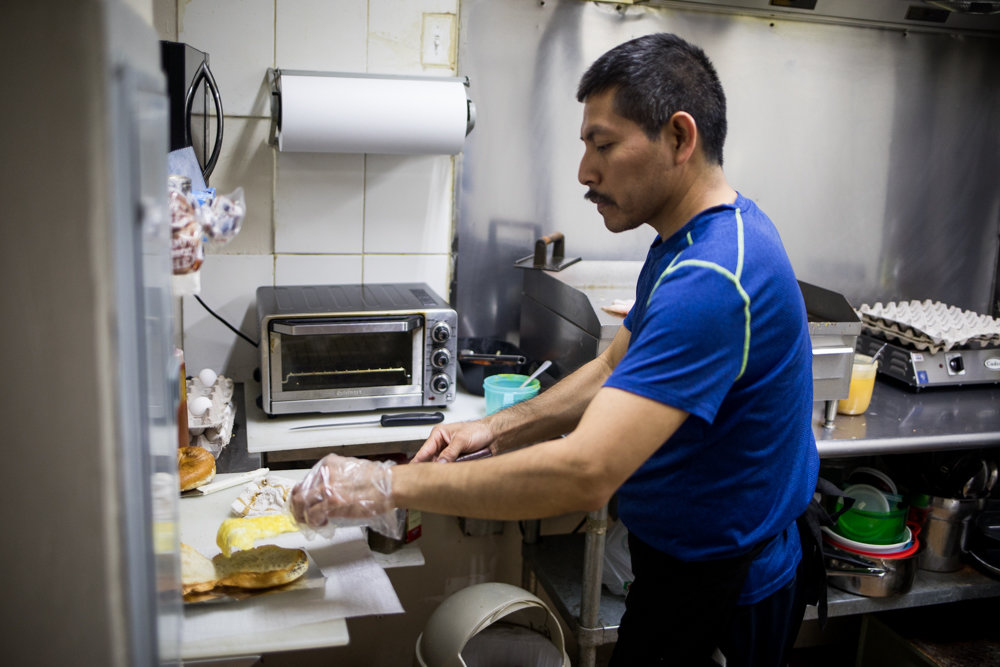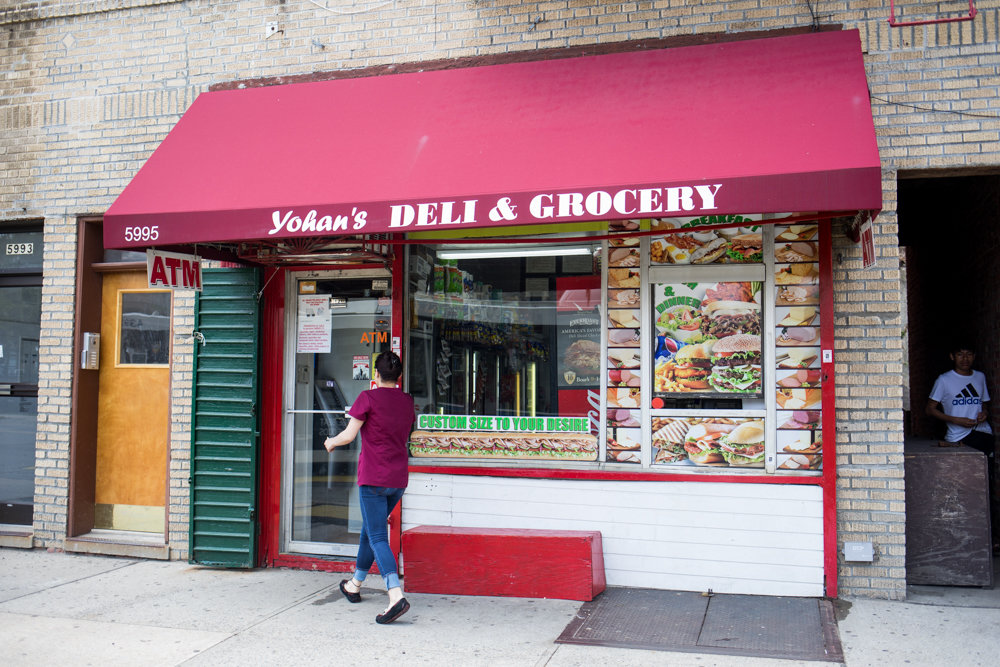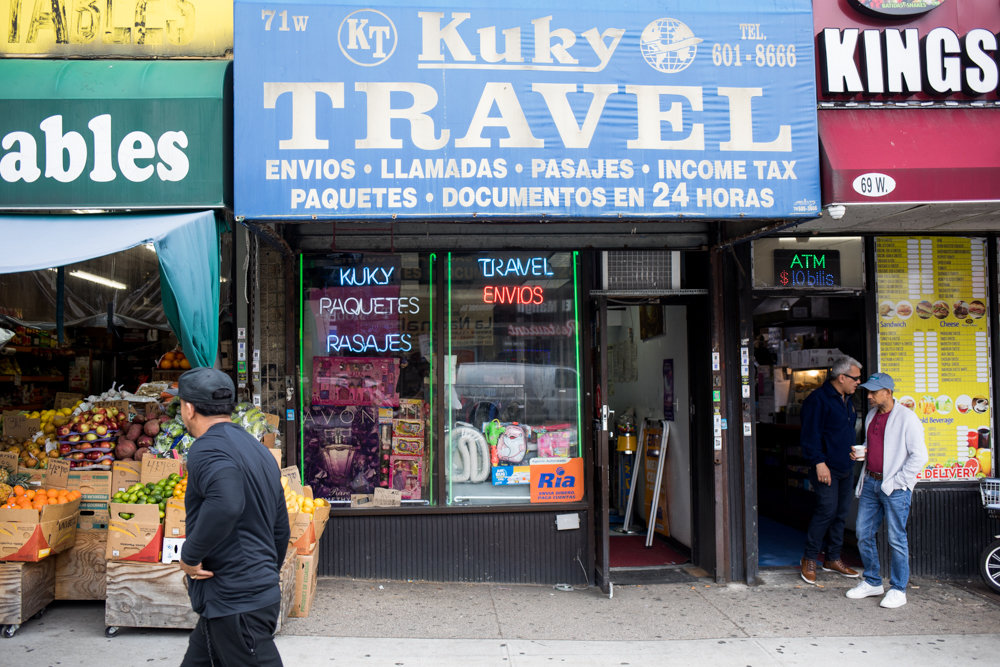Wary immigrant small biz owners battle rent demon
Successfully running a bodega, travel agency or any small business in the city can require heroic effort. But Josue Guerrero and his family have done just that at Yohan’s Deli & Grocery.
“It’s very difficult,” Guerrero said in Spanish. He pays upward of $2,600 a month in rent for the small space on Riverdale Avenue just south of the city line, which he believes is unnecessarily high. “There are days in winter when it becomes a little slow.”
But business also lulls when local students — who’d typically pop in for chips and candy — disappear for Easter recess or summer vacation. “So it’s difficult to obtain the money for the end of the month,” he said.
Guerrero works tirelessly because he and wife Reina also are raising five kids in Yonkers.
“It’s hard to maintain the rent of your home, of your business, and take care of a family,” Guerrero said.
Guerrero — who came to the United States from Puebla, Mexico, nearly three decades ago — hopes elected city and state leaders will double down on enacting stronger rent laws that could make his less onerous. But at the moment, “We don’t know who will defend us as far as regulating rents,” he said.
In spite of all that, Guerrero tries to keep prices low for customers. A small coffee recently jumped a quarter, although that’s barely half what it costs at Dunkin’ in the Skyview Shopping Center. And while charging more could help offset ever-increasing costs, drastic hikes might send regulars elsewhere.
Keeping the place humming is a pretty bare-bones operation. It’s Guerrero, his wife Reina, and the kids helping out when they’re not in school. They can’t afford additional staff.
Guerrero’s landlord changed recently, giving him a new 10-year lease and a measure of stability. But they also raised rent by around $600 a month, with annual increases locked in at around 3 percent.
But it’s probably no revelation rising commercial rent is a major worry for immigrant businesses around the city, according to a report released last month by the Association for Neighborhood & Housing Development. The organization tapped nearly 100 business owners — including some in Kingsbridge, but also Manhattan’s Lower East Side, and Queens’ Jackson Heights — and discovered 77 percent of owners believe they’re overburdened by rent.
In fact, nearly half said they had to raise prices because of it, and more than a quarter reported they’d laid off employees to close the gap between revenue and rent. Roughly one-in-five, meanwhile, lacked a lease.
Yet, even as businesses open and shutter amid the tumult of retail succession and neighborhood change, the businesses the development association talked to are firmly embedded in their communities, many having operated more than a decade, while employing four workers, on average. And, more than half the owners live in the neighborhood in which their business operates.
But a particular issue for Kingsbridge businesses — close to 60 percent, in fact — are complaints about landlords harassing them, the association found. To be sure, the report acknowledges “harassment” is a broad term, but for the sake of the project, identified it as any way a landlord may deny a commercial tenant essential services pursuant to a lease agreement.
That could include heat, electricity, hot water, or clear access to storage spaces.
For immigrant owners of Kingsbridge businesses in particular, less than 70 percent of those surveyed reported having a lease, while nearly 90 percent said they’re overburdened by rent.
Immigrant-owned small businesses make up nearly half the city’s roughly 220,000 small businesses, the association said, citing its own analysis of census-level data from local, state and federal sources. But the association also acknowledged such sources don’t account for unlicensed businesses, which tend to be located in the city’s “most vulnerable commercial corridors.”
Immigrants themselves employ nearly a half-million people living in the state, the association added, citing a 2017 report from the New York Immigrant Coalition. They contribute $195 billion to the city’s gross domestic product annually, according to the mayor’s immigrant affairs office.
And it’s obvious to many they are crucial to the city’s economic and cultural vitality, these businesses are up against a number of obstacles hampering their ability to survive. In past reports, the association has blamed commercial warehousing, various barriers to securing finance, and lack of governmental resources as general small business threats. But when immigrant small businesses vanish, so too do jobs, community spaces, and affordable goods and services in poor communities of color.
“Commercial displacement becomes cultural displacement,” the association said.
Felix Castillo is just one immigrant business owner in Kingsbridge Heights who’s avoided that fate. He arrived in the United States from the Dominican Republic some 25 years ago, and for most of that time, he has operated Kuky Travel, a travel agency and money transfer business on West Kingsbridge Road.
Paying rent — now $2,500 a month — on top of basic utilities never has been easy for Castillo. But he says it’s become harder, in part because of technology, as young people who live in the neighborhood tend to rely on smartphone apps and the internet for the kinds of services Kuky offers. Meaning Castillo’s brick-and-mortar spot tends to attract en ever-shrinking set of elderly customers.
Meanwhile, with his landlord changing, he’ll have to negotiate a new lease, and really isn’t sure how that could pan out.
“When you’re an immigrant, you don’t know what to expect when you arrive here,” Castillo said in Spanish. “You don’t know what challenges you’ll face. Generally, because of this, the immigrant has to do the work that a native no longer does.”
And while Castillo certainly isn’t alone, it sometimes can feel that way.
“Right now, we feel abandoned, unprotected,” Guerrero said of Yohan’s. “Everyone fights their own fight, as (best) they can. We (only) spend when necessary. This is why we survive.
“We’re happy with what we’ve accomplished. But with the kids growing up, maybe let’s think about looking for something bigger, better.”

